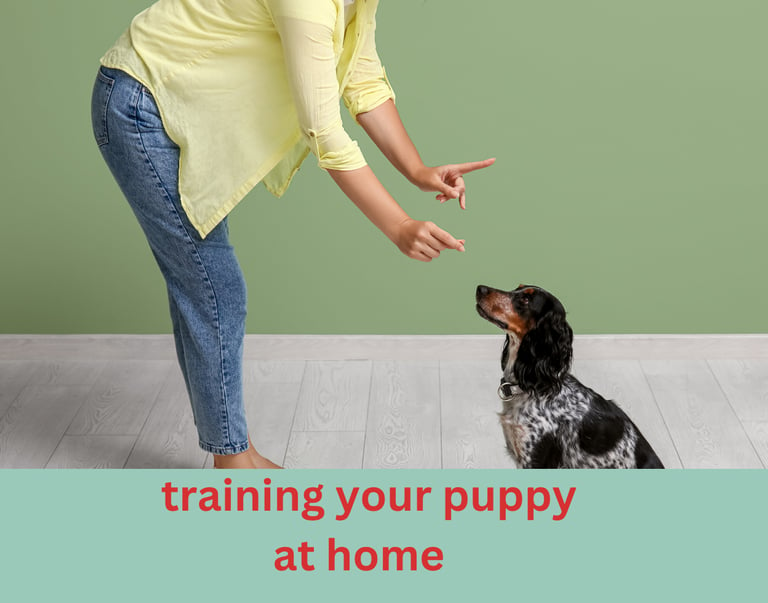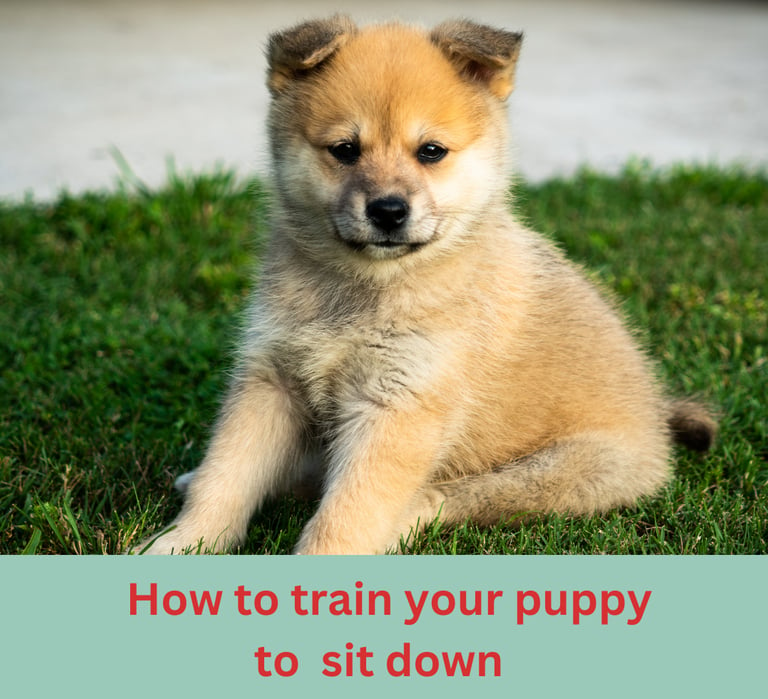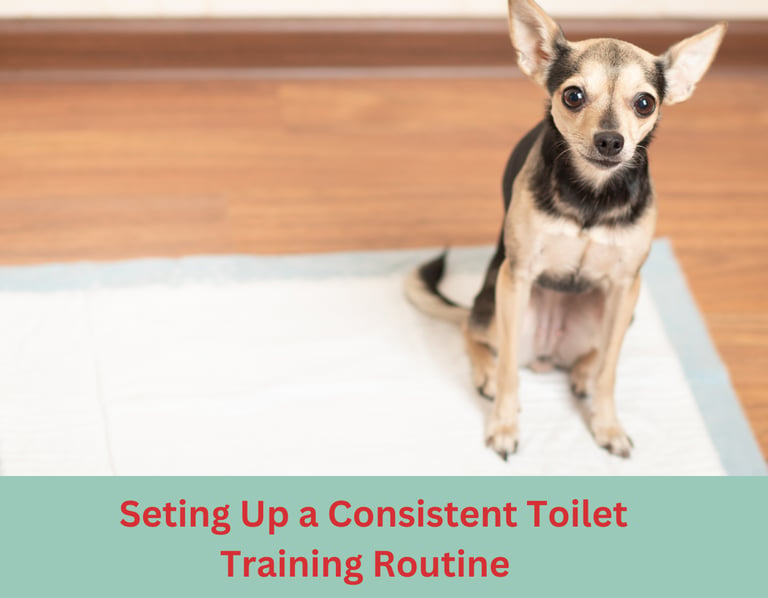What is the First Thing You Should Train Your Puppy? First Skills a Puppy Should Learn
8/27/20255 min read


Understanding Your Puppy’s Learning Capacity
In the early stages of development, puppies possess remarkable innate learning abilities that significantly shape their behavior and cognition. Understanding these capabilities is crucial for pet owners intending to train their puppies effectively.
Generally, puppies are highly receptive to new experiences, and their brains are primed for learning during the sensitive period, which typically occurs between three and sixteen weeks of age.
During this timeframe, they absorb information about their surroundings and gradually gain awareness of their environment.
Socialization plays a pivotal role in a puppy’s early development. Exposing puppies to various people, environments, and other animals enhances their confidence and adaptability.
This exposure helps them learn to navigate different situations, reducing the likelihood of fear-based behaviors later in life.
Furthermore, the breed of the puppy may influence its learning capacity; some breeds are naturally more eager to please and learn commands quickly, while others may require additional encouragement and reinforcement.
Individual temperament is another critical aspect that affects how each puppy learns. While some may be more independent or stubborn, others might display an eagerness to engage with training exercises.
Recognizing your puppy’s unique personality will guide your training approach, allowing you to tailor techniques to suit its needs.
Building a strong bond with your puppy is essential in this relationship, as it creates a foundation of trust that facilitates effective communication during training sessions.
When puppies feel secure and connected to their owners, they are more likely to respond positively to commands and instructions.
In conclusion, understanding your puppy’s learning capacity, influenced by factors such as age, breed, and temperament, is vital for effective training. By fostering a nurturing environment and a strong bond, you can set the stage for a well-adjusted and well-trained companion.
The Importance of Basic Obedience Commands
Training a puppy begins with the fundamental obedience commands that shape their behavior and strengthen the bond between the dog and its owner.
Commands such as "sit," "stay," "come," and "down" are essential building blocks in a dog's training repertoire.
Mastering these basic commands ensures not only the dog's safety but also provides the owner with peace of mind.
Such commands allow owners to manage their puppy's behavior effectively, whether indoors or outdoors, thus fostering a more harmonious household.
The command "sit" is often the first that puppies learn. It is a simple yet effective way to gain the dog’s attention and can serve to calm an excitable puppy.
Teaching "stay" is crucial, as it instructs the dog to remain in a designated position, which can prevent potential hazards, especially in busy environments.
The command "come" is critical for ensuring that a puppy returns to its owner, promoting both safety and reliability in off-leash situations.
Lastly, "down" helps in teaching the puppy to relax and maintain composure, further enhancing their overall obedience.
Implementing positive reinforcement is key when training these commands. Rewarding your puppy with treats, praise, or playtime after successfully executing a command encourages them to repeat the behavior. Training sessions should be short and engaging to hold the puppy's attention.
Consistency in using commands and responding to your puppy's efforts will help in reinforcing learning. Additionally, it is advisable to practice these commands in different environments to generalize their understanding and follow-through.
In conclusion, mastering basic obedience commands is vital for any puppy's development.
These commands not only enhance safety and manageability but also lay the groundwork for more advanced training. By utilizing positive reinforcement and maintaining a consistent training approach, owners can ensure that their puppies develop into well-behaved and responsive companions.
Socialization: The Key to a Well- Adjusted Dog
Socialization is a fundamental aspect of a puppy's training journey, setting the groundwork for a well-adjusted and confident adult dog. This process involves exposing your puppy to different people, environments, and other animals in a controlled, positive manner.
Effective socialization helps puppies develop a balanced temperament, reduces anxiety, and fosters desirable behaviors, which are crucial for a lifetime of companionship.
The critical period for socializing puppies typically occurs between three and fourteen weeks of age. During this timeframe, their brains are particularly receptive to new experiences, making it the ideal window for introducing various stimuli.
Failing to socialize a puppy adequately during this period can result in fearfulness and behavioral issues as they grow older, leading to difficulties in adjusting to new situations and environments.
To ensure successful socialization, it is essential to introduce your puppy to a variety of experiences gradually. Organize playdates with other vaccinated puppies to promote positive interactions.
Visiting pet-friendly parks and engaging with diverse groups of people can also provide valuable exposure. Furthermore, allowing your puppy to explore different surfaces, sounds, and smells helps build confidence and adaptability.
Safety is paramount during socialization, so always supervise your puppy's interactions and ensure they are in a secure environment. Expose your puppy to new experiences in a calm and controlled manner, rewarding them with treats and praise for good behavior.
This positive reinforcement encourages your puppy to associate new situations with rewards, fostering a sense of security.
Proper socialization not only benefits your puppy's behavior but also enhances their ability to cope with life’s challenges, making it an essential component of their early training.
Establishing a Routine and Positive - Reinforcement Techniques
Establishing a routine is crucial in puppy training as it provides a structured environment that enhances the learning experience.
Puppies thrive on predictability, so consistency in training sessions, feeding times, and playtime can significantly aid in their adjustment to new behaviors.
By setting a regular schedule, you not only help your puppy anticipate when certain activities will occur, but you also establish a sense of security.
For example, feeding your puppy at the same time each day helps regulate their digestion and behavior, making it easier to incorporate training into the daily routine.
Similarly, scheduling playtime can serve as an excellent opportunity for reinforcing learned commands through engaging activities.
Positive reinforcement is a powerful method for encouraging desired behaviors in puppies.
This technique involves rewarding your puppy for exhibiting behaviors you want to promote, turning training sessions into enjoyable experiences. Common methods of positive reinforcement include offering treats, verbal praise, or engaging in play.
When using treats, make sure they are small, nutritious, and something your puppy actively enjoys.
Verbal praise, such as saying “good boy” or “well done,” can help build your puppy's confidence, while playtime can serve as a reward for successfully following commands.
It is important to be aware of the common pitfalls associated with positive reinforcement. Avoid giving treats excessively, as this could lead to unhealthy weight gain and diminish the value of the reward. Additionally, be cautious about rewarding behaviors you do not want to reinforce inadvertently.
For instance, if your puppy jumps up to receive attention and you respond with affection, you may be unintentionally encouraging that behavior. Instead, wait for your puppy to sit calmly before providing any rewards.
By creating a supportive and engaging environment based on established routines and positive reinforcement techniques, you can effectively motivate your puppy to learn and grow in a healthy manner.













